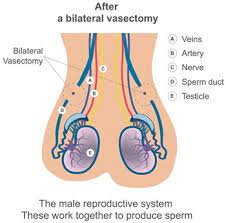
Cost Of Vasectomy
The cost of a vasectomy can vary depending on several factors, including the location of the procedure, the doctor performing the procedure, and whether or not you have insurance coverage. In general, the cost of a vasectomy ranges from $500 to $1,000 for the initial consultation and procedure, and you may need to pay additional fees for follow-up visits. Some insurance plans cover the cost of a vasectomy, so it’s a good idea to check with your insurance provider to see what is covered. You can also ask the doctor’s office about payment options and whether they offer financing.
What Is the Cost Of Vasectomy:
The cost of a vasectomy can vary, but in general, it ranges from $500 to $1,000 for the initial consultation and procedure. This cost may vary based on several factors, including the location of the procedure, the doctor performing the procedure, and whether or not you have insurance coverage. Some insurance plans cover the cost of a vasectomy, so it’s a good idea to check with your insurance provider to see what is covered. You can also ask the doctor’s office about payment options and whether they offer financing.
What We Should Know About the Cost Of Vasectomy:
There are several things that you should know about the cost of a vasectomy:
- The cost can vary depending on the location of the procedure, the doctor performing the procedure, and whether or not you have insurance coverage.
- In general, the cost of a vasectomy ranges from $500 to $1,000 for the initial consultation and procedure. You may need to pay additional fees for follow-up visits.
- Some insurance plans cover the cost of a vasectomy, so it’s a good idea to check with your insurance provider to see what is covered.
- You can ask the doctor’s office about payment options and whether they offer financing.
- A vasectomy is a permanent form of birth control, so it’s important to consider the long-term costs and benefits before making a decision.
- It’s also important to understand that a vasectomy does not provide protection against sexually transmitted infections (STIs). If you are not in a monogamous relationship, you should still use a barrier method, such as a condom, to reduce the risk of STIs.
Cost Of Vasectomy How To Get It?
There are a few steps you can follow to get a vasectomy:
- Research your options: Look for a urologist or other healthcare provider who specializes in vasectomies. You can ask your primary care doctor for recommendations or search online directories of healthcare providers in your area.
- Schedule a consultation: During the consultation, you will have the opportunity to discuss the procedure with the healthcare provider and ask any questions you may have.
- Review your options: The healthcare provider will explain the different types of vasectomy procedures available and help you decide which one is right for you.
- Make a decision: Once you have all the information you need, you can decide whether or not a vasectomy is right for you. If you decide to proceed with the procedure, you can schedule a date for the procedure with the healthcare provider.
- Prepare for the procedure: Your healthcare provider will give you instructions on how to prepare for the procedure, including any medications you should take or avoid and any activities you should avoid before the procedure.
- Undergo the procedure: The procedure itself is typically quick and performed in the healthcare provider’s office. It is usually done using local anesthesia, so you will be awake during the procedure but will not feel any pain.
- Follow post-procedure instructions: Your healthcare provider will give you instructions on how to care for yourself after the procedure, including any activity restrictions and follow-up care.
Cost Of Vasectomy How Its Work?
A vasectomy is a surgical procedure that is performed to block the tubes that carry sperm from the testicles to the penis, making it impossible for a man to get a woman pregnant. The procedure is performed by a urologist or other healthcare provider and is usually done using local anesthesia, so the man is awake during the procedure but does not feel any pain.
There are two main types of vasectomy procedures:
- Conventional vasectomy: This is the most common type of vasectomy and involves making two small incisions in the scrotum. The healthcare provider will locate the vas deferens (the tubes that carry sperm) and cut or block them to prevent sperm from being released during ejaculation.
- No-scalpel vasectomy: This is a newer type of vasectomy that involves making a small puncture in the scrotum rather than making a traditional incision. The healthcare provider will locate the vas deferens and cut or block them in the same way as a conventional vasectomy.
After the procedure, the man will be given instructions on how to care for himself, including any activity restrictions and follow-up care. It is important to follow these instructions carefully to ensure a successful outcome and minimize the risk of complications.

If you want to get amazing benefits by using this link
Cost Of Vasectomy Conclusion:
A vasectomy is a surgical procedure that is performed to block the tubes that carry sperm from the testicles to the penis, making it impossible for a man to get a woman pregnant. The cost of a vasectomy can vary depending on several factors, including the location of the procedure, the doctor performing the procedure, and whether or not you have insurance coverage.
In general, the cost of a vasectomy ranges from $500 to $1,000 for the initial consultation and procedure, and you may need to pay additional fees for follow-up visits. Some insurance plans cover the cost of a vasectomy, so it’s a good idea to check with your insurance provider to see what is covered. You can also ask the doctor’s office about payment options and whether they offer financing. It’s important to carefully consider the costs and benefits of a vasectomy and discuss the procedure with your healthcare provider before making a decision.









